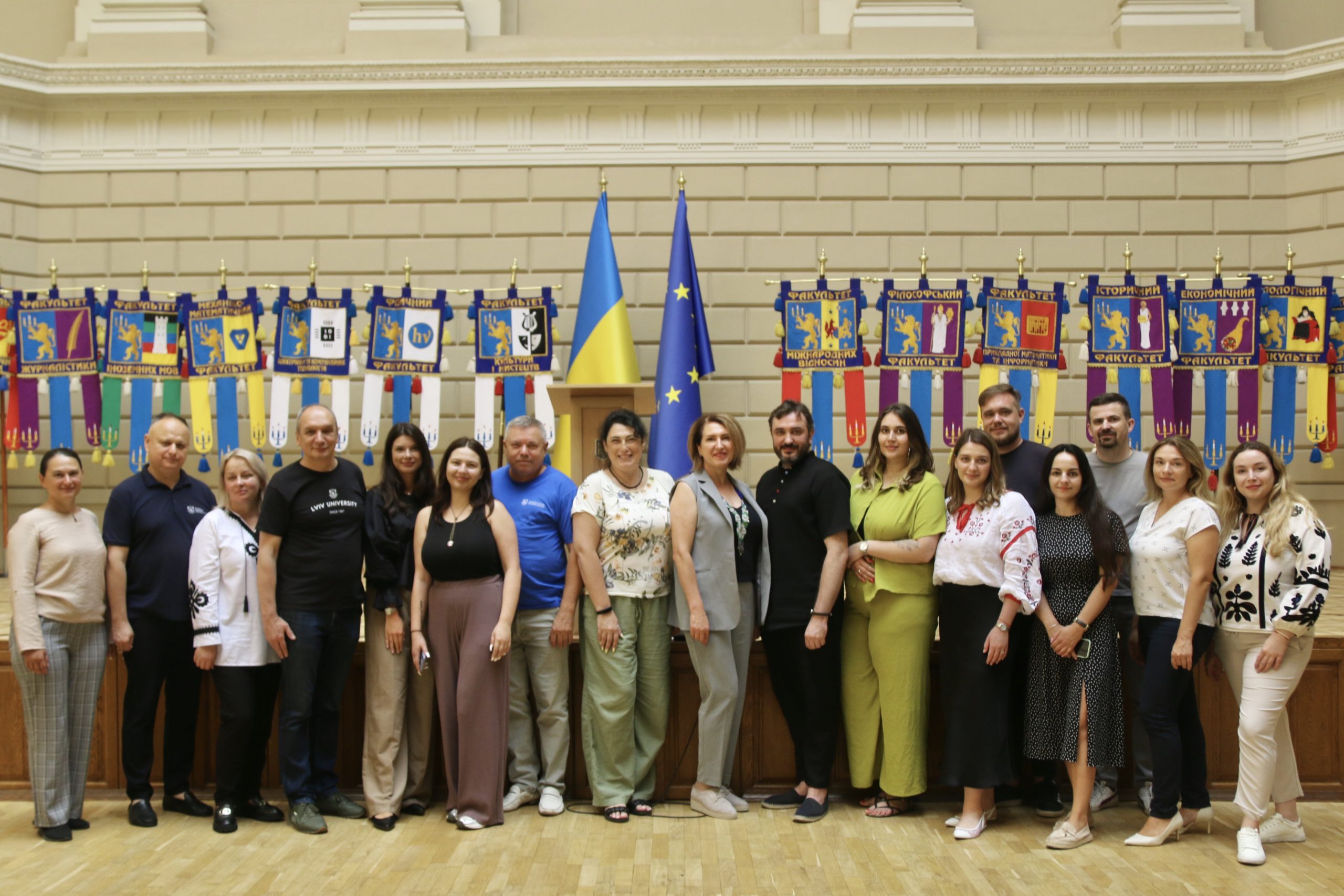 On 28 August 2024, the Ivan Franko National University of Lviv presented a new modular course on Data Journalism. This course will be available to journalism, business management, and finance faculty students, aiming to prepare a new generation of specialists capable of working with open data.
On 28 August 2024, the Ivan Franko National University of Lviv presented a new modular course on Data Journalism. This course will be available to journalism, business management, and finance faculty students, aiming to prepare a new generation of specialists capable of working with open data.
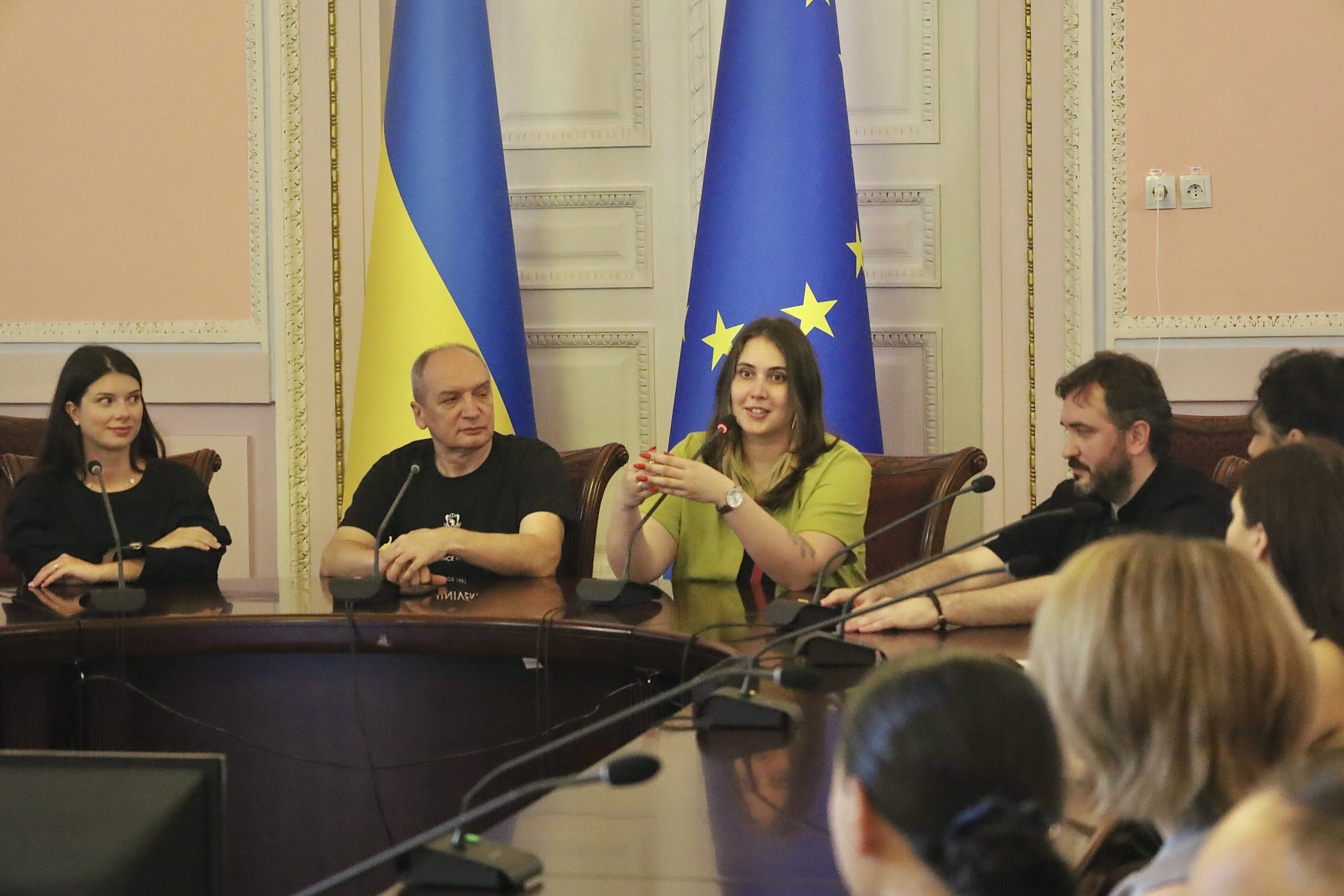 Working with open data is critical in a world where information is becoming the basis for decision-making at all levels, from the media to public policy. The modular course “Data Journalism” is designed to teach students how to analyse and use data to create high-quality materials that meet the needs of Ukrainian society.
Working with open data is critical in a world where information is becoming the basis for decision-making at all levels, from the media to public policy. The modular course “Data Journalism” is designed to teach students how to analyse and use data to create high-quality materials that meet the needs of Ukrainian society.
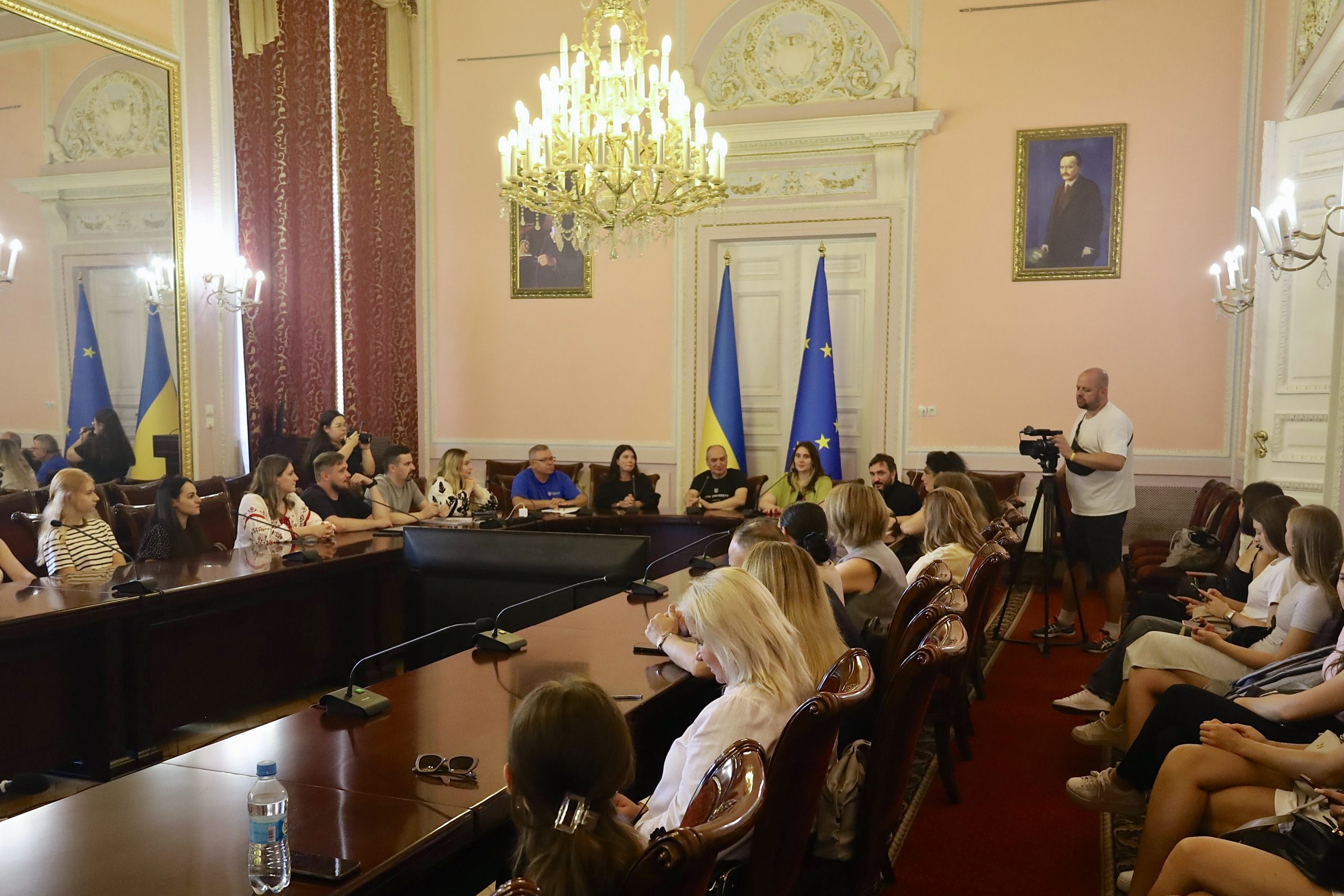 This year, the modular course “Data Journalism” is being implemented in four Ukrainian higher education institutions:
This year, the modular course “Data Journalism” is being implemented in four Ukrainian higher education institutions:
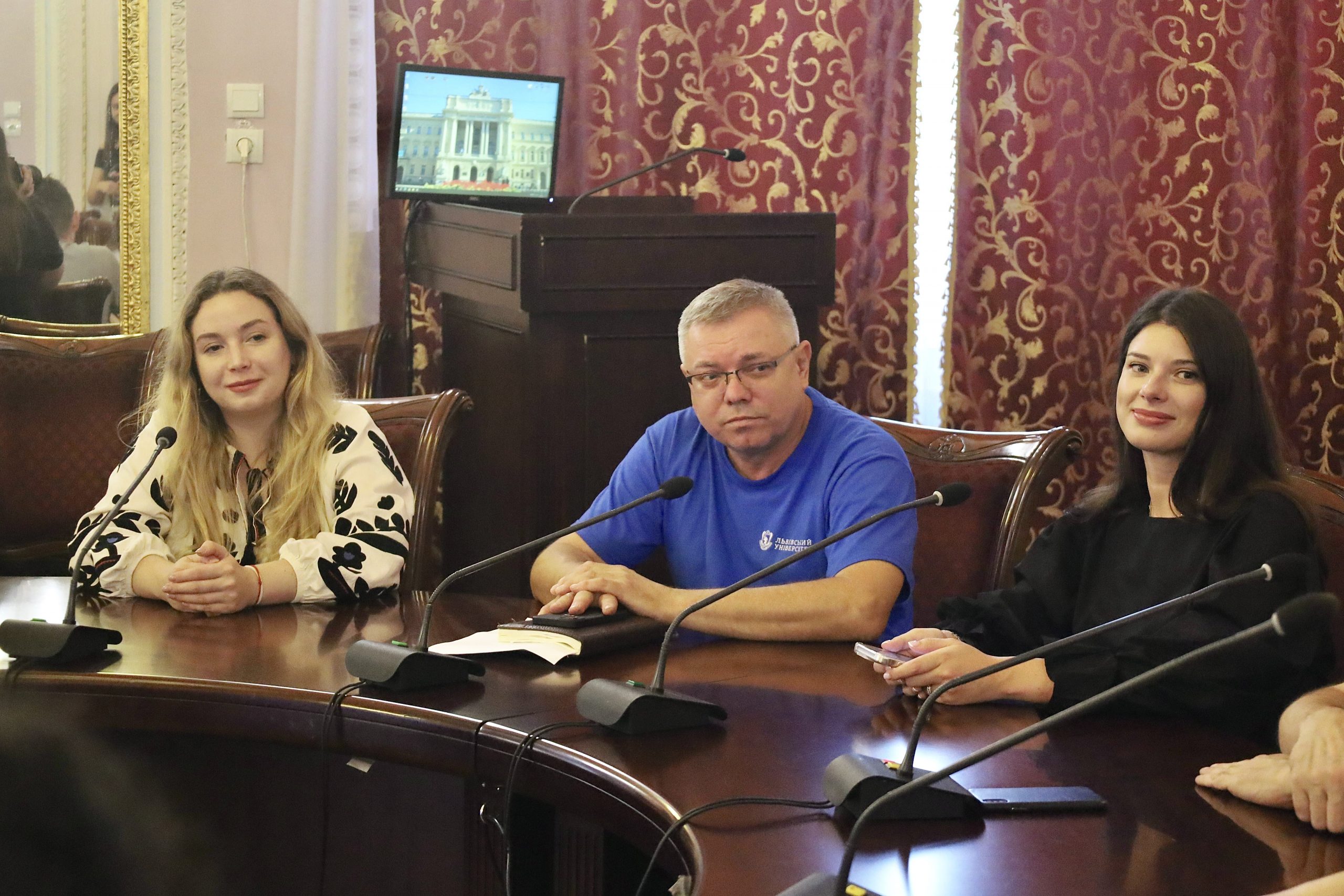 The eight modules of the “Data Journalism” course will be dedicated to:
The eight modules of the “Data Journalism” course will be dedicated to:
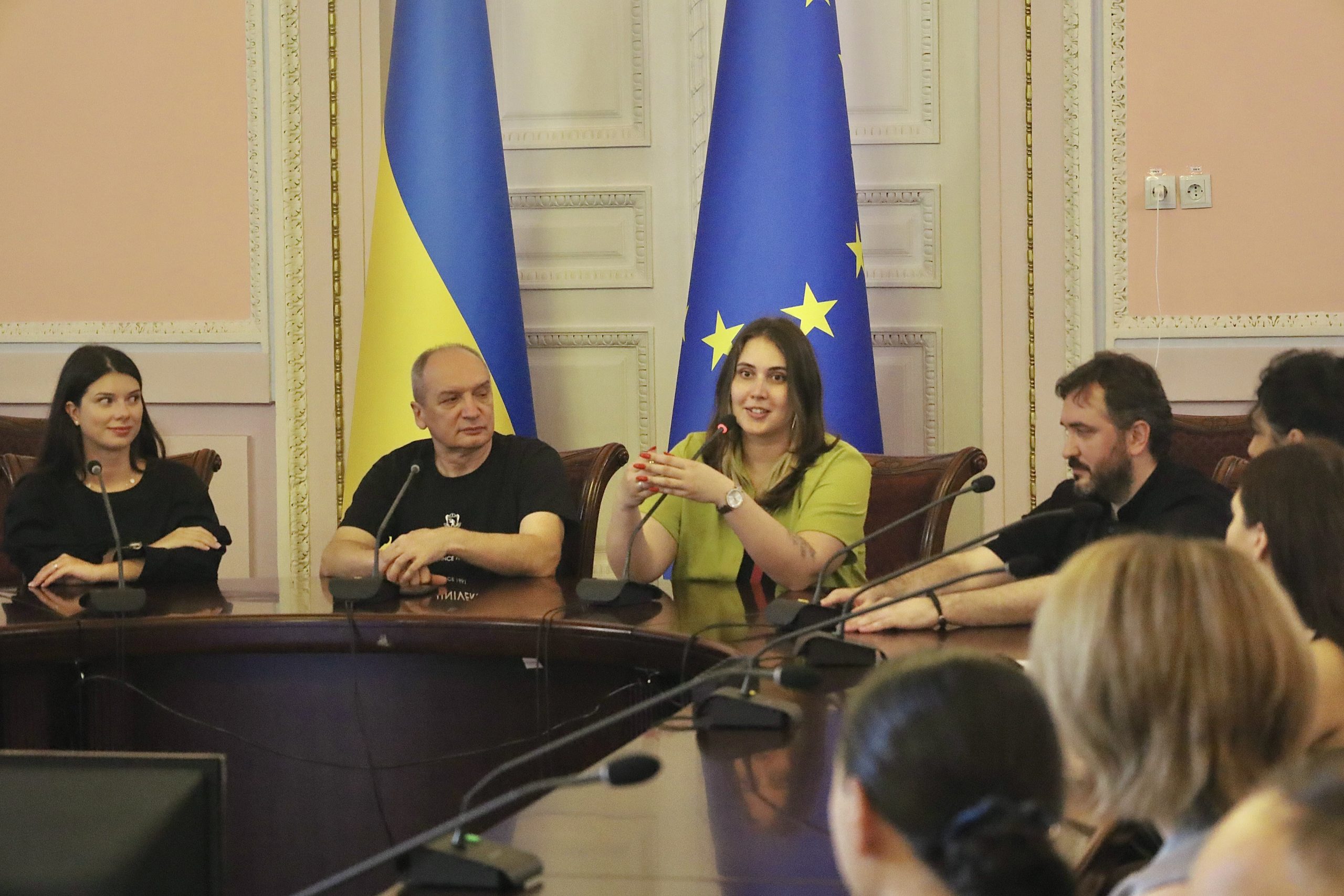 This educational initiative will not only elevate the professional level of future experts but also contribute to the development of the open data sector in Ukraine.
This educational initiative will not only elevate the professional level of future experts but also contribute to the development of the open data sector in Ukraine.
 The course was developed with the assistance of the Ministry of Digital Transformation of Ukraine with the support of the Digital Transformation Activity funded by USAID and UK Dev. The implementing partner is the BRDO.
The course was developed with the assistance of the Ministry of Digital Transformation of Ukraine with the support of the Digital Transformation Activity funded by USAID and UK Dev. The implementing partner is the BRDO.
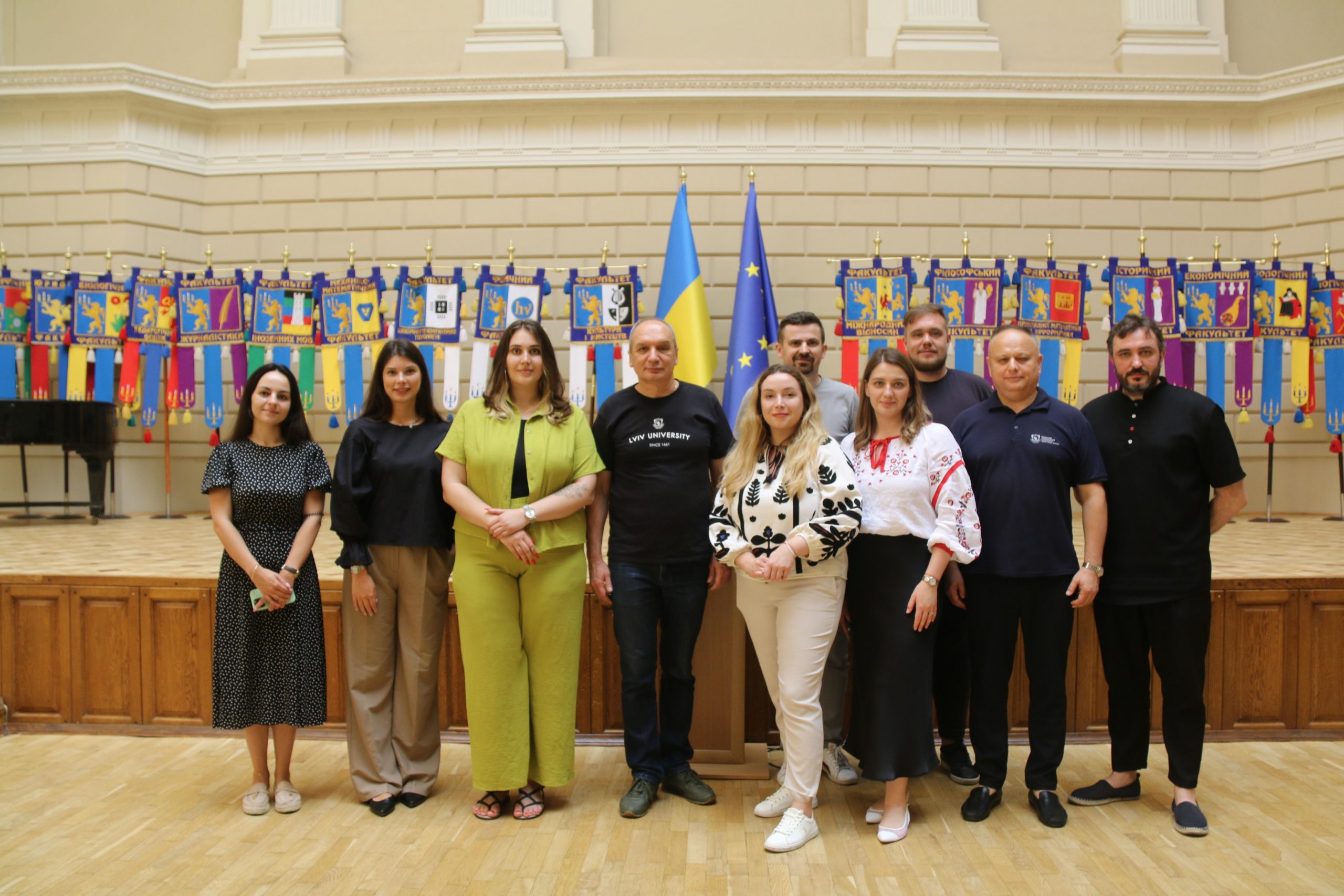
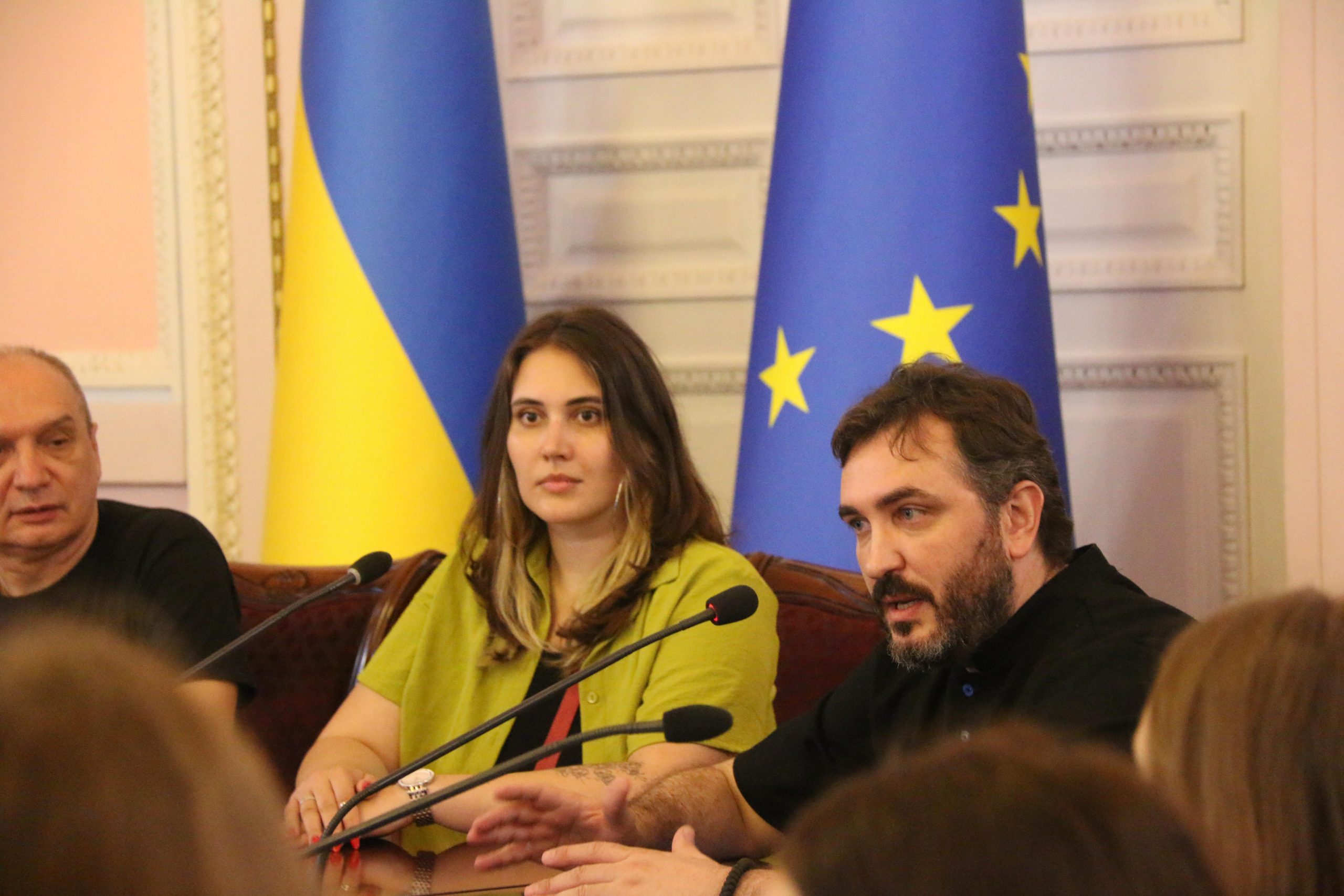
A year ago, on 18 August 2023, draft law No. 9623 on decriminalising pornography was registered in the Verkhovna Rada of Ukraine.
It is worth reminding that the production and circulation of porn is completely prohibited in Ukraine. The maximum sanction for violations is imprisonment for 7 years. Criminal liability for such actions contradicts the constitutional rights of citizens and does not meet modern European standards. It is a waste of state resources to prosecute “crimes” that do not pose a real threat to society.
What happened during the year:
To unblock the consideration of the draft law No. 9623, the decision of several persons is still needed: the chairman of the relevant VRU Committee, the Minister of Internal Affairs of Ukraine, and the leadership of the factions and the parliament.
At the same time, Ukrainian society has repeatedly demonstrated its desire to make Ukrainian legislation more modern and similar to European legislation: Ukrainians have collected more than 25,000 signatures under a petition to decriminalise pornography, and more than 20 NGOs, including military and volunteer associations, have supported the decriminalisation law.
Statistics also show that society is ready to decriminalise pornography. In particular, Ukraine is among the top 20 countries in terms of traffic consumption on Pornhub. The OnlyFans platform, which provides access to pornographic products, was one of the first foreign companies to pay tax for the provision of electronic services in Ukraine in 2022. Note that erotic content is even used to collect donations for Ukraine’s defence purposes (the Teronlyfans association earned UAH 31 million for the Armed Forces thanks to nudes).
Why is it important to adopt draft law No. 9623, and is martial law not an obstacle to this?
Reducing criminal prosecutions of citizens for acts that do not contain a public danger is more relevant than ever during the war. Ukrainians also need other positive consequences of the adoption of the law.
In particular, the decriminalisation of adult voluntary pornography will save budget funds and provide additional revenues to the state budget through taxes, and reduce corruption in law enforcement agencies. It will also free up law enforcement time to fight real crimes, such as cybercrime and child pornography.
What is important to know about draft law No. 9623?
Additional materials:
The Ministry of Digital Transformation is submitting for public discussion a draft order of the Cabinet of Ministers of Ukraine “On Approval of the Strategy for the Development of the Open Data Sector of Ukraine for 2025-2027” to seek public opinion and receive proposals for ensuring the sustainable development of the open data sector.
The Strategy aims to harmonise with European standards and normative and legal regulation requirements, develop the efficiency of governmental and administrative processes through decision-making based on open data, and strengthen the institutional capacity to formulate and implement the state open data policy in Ukraine.
There are six key areas of development identified in the Strategy:
The online discussion of the strategy will take place on 21 August 2024 at 11:00 a.m. at the Data+ communication platform meeting. The discussion will start on 21 August 2024 at 11:00. Registration of participants is open until 18 August at the link.
Please send your comments and suggestions to [email protected] or send them to the postal address: 24 Dilova St., Kyiv, 03150, by 3 September 20.
The Open Data Development Strategy for 2025-2027 was created at the initiative of the Ministry of Digital Transformation of Ukraine with the support of the Digital Transformation Activity, funded by USAID and UK Dev. The implementing partner is the East Europe Foundation.
The Data+ communication platform was developed by the Ministry of Digital Transformation of Ukraine with the support of the Digital Transformation Activity funded by USAID and UK Dev. The implementing partner is the BRDO.
The State Service of Ukraine for Food Safety and Consumer Protection (SSUFSCP) with the support of the Digital Transformation Activity funded by USAID and UK Dev, together with representatives of the Eastern Europe Foundation and BRDO, held two focus groups with regional experts to create a unified information and communication system, that will become a single digital register of the service in the future.
The first focus group was held on 25 July in Kyiv and the second on 12 August in Lviv. During these events, regional specialists of the State Service of Ukraine for Food Safety and Consumer Protection took part in developing the most effective ideas and solutions that will be implemented in a single digital information and communication system. As of today, proposals from employees from 16 regions of Ukraine have already been collected.
“The State Service of Ukraine for Food Safety and Consumer Protection is actively moving towards digital transformation. It is important for us to ensure that the reforms we have initiated are applied and bring about qualitative changes – to maximise business benefits. That is why we seek to receive as many recommendations, advice and suggestions as possible from our regional experts who have significant practical experience. All of their ideas will be implemented in our digital registers,” said Serhii Tkachuk, Acting Head of the State Service of Ukraine on Food Safety and Consumer Protection.
According to Solomiya Starosolska, Advisor to the Head of the State Service of Ukraine for Food Safety and Consumer Protection, Head of Deregulation and Business Support within the Digital Transformation Activity, Eastern Europe Foundation, the results of the focus groups already show a vision of key solutions to be implemented.
“The registration of capacities should become fully automated so that the service will be provided in a declarative format in compliance with the principle of extraterritoriality. We want to reduce the application processing time from 10 days to 1 day. With regard to operational permits, we plan to significantly simplify the process of issuing them. We will shorten the timeframe and revise the procedures for determining the fee for inspection activities depending on the size of the enterprise (micro, small, medium, large),” said Solomiya Starosolska.
It is planned that the registration of facilities will be based on inspections carried out using body cameras and tablets, and payment for services will be automated. When submitting applications, companies will clearly indicate the areas of activity, which will allow the state to obtain accurate information on regional attractiveness and capacity categories. The latter, among other things, will help attract investment more effectively. The combination of all these measures will allow to collect information on issued permits, which will also simplify export operations.
“The State Service of Ukraine for Food Safety and Consumer Protection regulates the activities of extremely important areas that have a direct impact on food security, as well as on the life and health of every Ukrainian citizen. Therefore, improving the work of the Service with the help of digital tools is a crucial task that we are jointly implementing, including with a view to integrating it with the Single Window of Customs Trade. I am grateful to all the employees of the State Service of Ukraine for Food Safety and Consumer Protection who gave their professional suggestions and advice on what the digital services of the Service should be and how they should work during two focus groups,” said Danylo Molchanov, Chief of Party of the Digital Transformation Activity.
“The creation of the Unified State Information and Communication System of the State Service of Ukraine for Food Safety and Consumer Protection will allow us to comprehensively review the procedures for providing public services and maintaining the relevant registers of the service. Thanks to the conducted focus groups, we have a clear understanding of what needs to be done: to minimise the time spent by both business and authorities on registering facilities and issuing operating permits, as well as to unify approaches to service delivery procedures throughout Ukraine. A comprehensive service and the introduction of a single application form will replace the need for businesses to take 7 separate actions and enter information into various registers. This, in turn, will make it easier for SMEs to enter the market and allow them to focus on other business issues,” said Iryna Gruzinska, Agriculture Sector Head of the BRDO.
The Digital Transformation Activity (DTA) is being implemented with the support of the United States Agency for International Development (USAID) and UK International Development (UK Dev). The project is committed to transforming Ukraine’s digital landscape to achieve three pivotal objectives: economic revitalization, transparency in reconstruction, and democratic governance.
The project partners are the East Europe Foundation and the Better Regulation Delivery Office (BRDO).
On August 8, the Ministry of Defence of Ukraine presented a new application Army+, which aims to digitize services for military personnel. It is an important step in the introduction of digitalization in the army to make the service more efficient and significantly reduce the amount of paperwork.
According to a survey conducted by the Ministry of Defence among nearly 64,000 service members from various units, it was the electronic reports that the military most wanted to have in a digital and convenient format.
“Excessive paperwork that slows down the efficiency and quality of service is one of the most frequent complaints I hear from the military. Efficiency and quality help us to hold our own in the war against the Russians. I believe that Army+ and the digitalization of the army, in general, will significantly strengthen these components. We are grateful to the Centre for Scaling Technological Solutions under the General Staff of the Armed Forces for creating the concept, developing and implementing the application,” said Rustem Umerov, Minister of Defence of Ukraine.
There are 11 types of reports available in Army+, grouped into four types: “For leave”, “For assistance”, “Referral” and “Issuance of a referral”. The reports can be submitted in a few minutes, and step-by-step tips will help you avoid mistakes when filling them out. Reports can be sent for signature using the Army ID option, a unique ID number for service members.
The BRDO team participated in the development of a set of already implemented legislative changes, in particular, draft law No. 10062 on the digitalization of the army, which included the creation of the Army+ application, and also helped to support the launch of the application.
“Army+ is not only a big step in the digitalization of the army, but also a demonstration of a human attitude towards our defenders. The people who risk their lives for our freedom should not have to fill out papers by hand, stand in lines, or travel long distances to sign a report. We will continue to introduce even more services for the comfort of our military,” said Kateryna Chernohorenko, Deputy Minister of Defence of Ukraine for Digital Development.
Another feature of the first version of the app is professional surveys for different groups of military personnel. It will allow the state to learn the opinion of servicemen on any issue, and the military themselves to influence real changes in the Ukrainian Defence Forces with their voices.
In the future, Army+ will become an ecosystem of products for the military. New features will be added to the app, which will be announced on the official pages of Army+ and the Ministry of Defence. Army+ is a state mobile application created by the military for the military. The app was created by the Ministry of Defence of Ukraine in cooperation with the military personnel of the Centre for Scaling Technological Solutions under the General Staff of the Armed Forces. Only active military personnel have access to Army+.
The Ministry of Economy of Ukraine announced the launch of the beta version of the “Pulse” platform, an online tool for collecting business feedback on interaction with state bodies. The platform aims to create a single digital tool to ensure transparent and effective relations between the state and business, which will improve the quality of public services.
How does “Pulse” work?
Entrepreneurs will be able to evaluate services provided by government institutions. During the beta testing, 22 government bodies can be evaluated, and later their number will increase.
“Thanks to this tool, it will be possible to see an objective measurement picture of the quality of state services and respond more efficiently and quickly to the problems of entrepreneurs. For example, if you have applied to the tax office, Centres for the provision of administrative services or other authorities and are not satisfied with the quality of services, then you can leave a review on Pulse. Your review will be taken to work to correct the problem, and the entrepreneur will receive an answer to his request in the online office. You can also leave positive feedback to scale up positive practices. We digitize the feedback from the business and based on it, the so-called Entrepreneur Satisfaction Score will be formed. There are plans to integrate “Pulse” into most state services, so that it would be possible to provide an instant assessment of most state services,” said the First Deputy Prime Minister-Minister of Ukraine – Minister of Economy of Ukraine Yuliia Svyridenko.
What functional components does the platform have?
Initiative and implementation
“Pulse” is part of the “Made in Ukraine” policy initiated by President Volodymyr Zelenskyi. The platform was developed by the Ministry of Economy, implemented with the assistance of the Ministry of Digital Transformation and made possible by the Digital Transformation Activity with the support of USAID and UK Dev. The Reform Support Team of the Ministry of Economy, the Council of the Business Ombudsman and the Government Contact Center are involved in the implementation. The development of the platform is coordinated by the Business Council on Support of Entrepreneurship in Martial Law.
Taxpayers who are legal entities do not have the right to apply for the simplified taxation system during the supply of electronic communication services – this clarification was recently published by the State Tax Service of Ukraine.
BRDO experts are convinced:
Last week, BRDO addressed the Cabinet of Ministers of Ukraine with an official letter regarding the resolution of this issue.
What happened?
The simplified taxation system cannot be applied to providers of Internet access services, which are legal entities. This explanation was published on the STS website in May this year.
According to BRDO, this official position is based on incorrect interpretation of certain provisions of the Tax Code and the Law “On Electronic Communications”, the development of which our team directly participated in.
Our understanding of the relevant legal provisions is detailed in the text of the letter.
Reference on the EU experience of simplified tax accounting for small businesses.
How will it affect the electronic communications sector of Ukraine?
The ability to use Internet services has already become a basic need, and in the conditions of war it has turned into one of the warranties for timely information about danger and further survival. The position of the STS may lead to an increase in prices and a decrease in the availability of the Internet for Ukrainians.
There are approximately 4,000 providers working in the segment of fixed broadband access to the Internet in Ukraine, and these are mainly small business entities (SMEs) on a simplified system that pay 5% of the single income tax. At the same time, some large Internet providers spend less than 1% of their revenue on income tax on the general taxation system. It is the simplicity of accounting and reporting that is the key reason for their choice of a simplified system.
Its cancellation will lead to the fact that, in order to comply with tax legislation, SMEs will be forced to pay disproportionately higher costs than large providers. This will significantly reduce their competitiveness and ability to develop networks and services.
EU policy is based on the fact that SMEs should receive state assistance and support due to the disproportionality of such costs. In the Action Plan on Fair and Simple Taxation in Support of the Recovery Strategy (2020), the European Commission indicates that the estimated tax compliance costs for large companies are around 2%, while for SMEs it is around 30% of taxes paid.
What are the specific negative consequences for business, service users and the state?
Why is BRDO involved and how do we propose to solve the problem?
The BRDO team has experience in optimizing regulatory relations, implementing European integration reforms and measures to facilitate doing business in the field of electronic communications.
In particular, we took an active part in the development of the new Law of Ukraine “On Electronic Communications” and the draft Strategy for the Development of Electronic Communications.
In recent years, we have conducted several studies in this area, as a result of which the analytical reports “Regulation of the market of fixed broadband access to the Internet”, “How to use the radio frequency resource to ensure quality communication in Ukraine”, “Market of voice telecommunications services” have been published.
Based on the knowledge of BRDO experts in the field of electronic communications of Ukraine, we emphasize the need to maintain a simplified taxation system for Ukrainian Internet providers, including legal entities.
We appeal to the CMU with a request to take measures to bring the position of the STS on the specified issue in line with the Tax Code of Ukraine, the Law “On Electronic Communications”, Articles 19 and 67 of the Constitution of Ukraine, in particular, to cancel the above-mentioned explanation of the STS.
This became possible thanks to the deregulation bill No. 7331, which was generally supported by the Verkhovna Rada of Ukraine yesterday.
Previously, BRDO, together with the Ministry of Digital Transformation of Ukraine and the Ministry of Economy of Ukraine, developed a package of regulatory and legal acts, in particular, Government Resolution No. 314 regarding the conduct of economic activities under martial law, as well as amendments thereto.
This made it possible to carry out economic activities based on the free submission of a declaration, without the need to obtain permits, licenses, other public services (except for high-risk activities, the list of which is defined in the Appendix to Government Resolution No. 314).
Also in 2022, a digital service for submitting declarations was launched ▶️ https://diia.gov.ua/services/yedeklaraciya.
They are most popular among entrepreneurs in the fields of educational activities, labor protection, ecology, etc.
At the same time, draft law No. 7331 was developed on the basis of the provisions of the Resolution. The document regulates the legal certainty of the status of the declaration and other permit documents, licenses, and the results of the provision of public services at the legislative level during the period of martial law.
What provisions does the bill No. 7331 contain?
BRDO worked on the draft law within the EU4Business: SME Policies and Institutions Support (SMEPIS) project implemented by Ecorys in a consortium with GIZ, BRDO and Civitta with the financial support of the European Union. The content of this publication is the sole responsibility of SMEPIS and does not necessarily reflect the opinion of the European Union.
From 486 billion to 1.1 trillion dollars – Ukraine’s reconstruction needs are estimated in this range.
While international aid is essential, bureaucratic hurdles often slow down financing of urgent projects such as energy, health, and education facilities. In this regard, the use of virtual assets can significantly speed up processes.
Since the beginning of the Russian invasion, Ukraine has been receiving help in virtual assets from various parts of the world. Aid for Ukraine works to finance military and humanitarian aid, the United24 platform, already well-known everywhere, allows you to make contributions with virtual assets through the Silent Donor system. In addition, for the accountable management of the reconstruction process in Ukraine, a single digital DREAM ecosystem has been created, which enables international governments to support specific projects and see progress related to allocated funds.
Can all these efforts be combined to match donations of virtual assets with specific rebuilding projects? In a new analytical note, Oksana Ihnatenko, researcher of the project “Supervising and Monitoring Ukraine’s Reconstruction Funds (SMURF)”, considers the possibility of using virtual assets to facilitate the receipt of aid for the urgent needs of the reconstruction of Ukraine, as well as the question of how stakeholders can provide transparent information about use of funds.
What should be done to optimize the use of virtual assets for recovery purposes?
✔️ Step 1: Understand regulation – Establish robust regulation to increase international donor confidence and combat financial crime.
✔️ Step 2: Consider Pre-existing Infrastructure- Create a centralised donation platform to reduce fraud risks and ensure transparency.
✔️ Step 3: Develop Strong Cyber-Security Infrastructure and Protocols – implement strict access protocols to the private keys of donors to minimize corruption risks.
✔️ Step 4: Test the System Before Launch – Perform detailed testing of the donation system to identify vulnerabilities before launch.
Ukraine already accepts donations in the form of virtual assets for the needs of war and humanitarian aid, so the development of a reliable virtual asset management system is becoming increasingly important.
🔗 Read the full text of the analytical note here
Supervision and Monitoring of Reconstruction Funds of Ukraine (SMURF) is a joint project of the Centre for Finance and Security (CFS) at RUSI and the BRDO. SMURF supports the stability and integrity of Ukraine’s financial system through thorough research and proactive measures. Learn more about SMURF or visit the official LinkedIn page.
On July 14, DELTA’s combat situational awareness system successfully passed the information security standard compliance test, which confirms the compliance of its integrated information protection system (IIPS) with the established requirements. The independent verification was carried out by one of the leading international consulting companies.
“For the first time in the history of Ukraine, the military system was certified according to the standards used in NATO countries. Prior to that, similar systems were tested according to 20-year-old standards, which have lost their relevance,” said Rustem Umyerov, Minister of Defence of Ukraine.
Previously, BRDO participated in the development of a complex of already implemented changes to legislation, including draft laws No 10062 and No 11143, which gave the Ministry of Defence of Ukraine new powers and opportunities for the development of digital systems in the field of security and defence.
“To defeat the enemy, we must be faster, more efficient, more innovative and more flexible, while not compromising on security. The collection, processing and use of data using Delta will allow better planning, execution of operations, and coordination of the actions of forces. Confirmation of compliance removes the last key blocker for scaling the implementation and development of the system,” explained Oleksii Dorofan, BRDO CEO.
The next step is the commissioning of DELTA by the Defence Forces of Ukraine. The system must be widely distributed in combat units to ensure a technological advantage over the enemy.
DELTA is a unique ecosystem of military products developed by the military for the military and built to NATO standards.
The main goal of DELTA is to provide the ability to see the battlefield in real time, to exchange information between units, brigades within the Armed Forces, groups, and, if necessary, also with allies.
Now entrepreneurs will be able to receive licenses and permits in electronic form. The Government adopted the decision to launch an experimental project on the introduction of the Unified State Electronic System of Permit Documents (ePermit) on July 5, 2024.
How will it work?
The development and launch of the ePermit system is carried out by the Ministry of Economy of Ukraine in partnership with the Ministry of Digital Transformation of Ukraine and is financed by component 2 of the international technical assistance project EU4DigitalUA, implemented by FIIAPP and financed by the EU. Advisory support for the development of regulations for the system is provided by the EU4Business: SME Policies and Institutions Support (SMEPIS) project implemented by Ecorys in a consortium with GIZ, BRDO and Civitta with the financial support of the European Union.
BRDO together with partners presented a single state electronic management system for the fisheries sector.
What are the advantages?
“State policy is successful when it solves the problems of all stakeholders. Back in 2019, we prepared a Green Book in the field of fisheries – in this study, we outlined the key challenges of the industry and ways to solve them. And today we are confidently moving in the direction of digitalization and deregulation,” noted Oleksii Dorogan, BRDO CEO.
At the event, 4 new services were presented: eContract, ePermit, eJournal, eTag.
The event was joined by:
Vitalii Holovnia – Deputy Minister of the Ministry of Agrarian Policy and Food of Ukraine;
Ihor Klymenok – Acting Director head of the State Agency of Land Reclamation and Fisheries of Ukraine.
Video recording of the conference
Try eRyba services here
The development of the system for the digitalization of the fishing industry was made possible by Digital Transformation Activity with support from USAID and UK Dev. Implementing partner – BRDO.
The first meeting of Data+, a communication platform created to support openness, transparency and development of open data in Ukraine, took place. The Data+ platform aims to become a key platform for communication between stakeholders, to promote joint advocacy for open data, and to improve policy in this area.
What was discussed at the first Data+ meeting?
Data+ is currently one of the tools to promote open data, which can only work if all stakeholders are actively involved in it. In particular, representatives of the Ministry of Digital Transformation consider the primary function of Data+ to be its ability to centrally receive all requests for both opening data sets and solving other issues related to this area.
What’s more: thanks to the fact that the platform will unite all stakeholders of the open data sphere, not only requests and urgent problems will be understood, but also the capabilities of all stakeholders (both among government bodies and the public, businesses and concerned citizens). One of the important participants of the platform is the Secretariat of the Human Rights Commissioner of the Verkhovna Rada of Ukraine, whose task is to ensure the right of citizens to access public information.
In addition, Data+ will help to form a plan of joint actions, determine those responsible and deadlines, as well as change priorities and understand where strengthening of the joint position is needed.
Many participants of the first meeting immediately expressed their desire to join the work of the platform both through expertise and joint actions. In addition, the participants outlined the following problems in the field, which should be given priority attention:
Do you want to develop the field of open data in Ukraine?
Anyone can become a member of the Data+ platform — we invite you to join the Facebook group.
The video recording of the first meeting available here.
The Data+ communication platform was developed by the Ministry of Digital Transformation of Ukraine and by the Digital Transformation Activity with support from USAID and UK Dev. Implementing partner is the BRDO.
This was stated by Oleksii Dorogan, CEO of BRDO, in his speech at the leading anti-corruption conference IACC.
Why is this important?
The International Anti-Corruption Conference is a biennial event organized by the IACC Council and Transparency International.
This year’s 21st IACC took place in Lithuania and was dedicated to the theme “Confronting Global Threats: Standing Up For Integrity”. About 2,000 participants from 140 countries took part in the conference – state leaders, delegates from the private and public sectors, as well as representatives of civil society.
Within the framework of IACC 2024, the RISE Ukraine coalition, co-founded by BRDO, organized the panel “Accountable and Transparent Reconstruction of Ukraine”.
In addition to Oleksiu Dorogan, moderator Martyna Bohuslavets, Chairman of the board of the Coalition and head of the MEZHA Anti-Corruption Center, and speakers Gavin Heyman, Open Contracting Partnership, Tetiana Khutor, Institute of Legislative Ideas, Juhani Grossmann, Basel Institute on Governance joined the event.
The experts shared Ukraine’s anti-corruption achievements, including the open data advocated by the RISE Ukraine Coalition, digital transparency tools Prozorro and DREAM – the State Digital Recovery Management Ecosystem.
What were Oleksii’s key messages?
Oleksii Dorogan emphasized the importance of supporting Ukraine’s efforts in the field of defense, and also presented a number of developments of the BRDO, in particular:
Application of experience in public procurement reform and development of Prozorro allows building efficient and understandable processes in defense procurement. This is important to minimize opportunities for corruption and ensure efficient use of resources to protect the country.
Until recently, the mobilization process was 99% paper-based. So citizens faced queues, bureaucracy and cases of corruption. Digital technologies make it possible to realistically assess the mobilization resource and make the procedures more efficient and protected from abuse.
A reservation service for conscripted employees of critical enterprises will soon appear on the Diia portal. This will automate and simplify the booking process while making it transparent and efficient.
BRDO facilitates the implementation of foreign cloud storage for some military systems. This reduces the risks of physical destruction of data centers on the territory of Ukraine and increases the safety and efficiency of working with critically important data.
BRDO is working on the development of logistics and accounting systems so that international partners can trust the efficient and transparent use of the aid provided.
Transparency and accountability are key factors for Ukraine’s victory and further lasting peace. We thank the international partners for the opportunity to join the leading conference, present the work and share the experience with colleagues.
In the first reading, the Parliament supported draft laws No. 8119 and No. 9545, developed by the BRDO together with the Ministry of Agrarian Policy and the State Fisheries Agency.
What do the draft laws introduce?
Law No. 9545 “On Ensuring the Traceability of Aquatic Bioresources and/or Products Produced from Aquatic Bioresources” implements EU regulations into Ukrainian legislation: No. 1224/2009 – on ensuring the traceability of aquatic bioresources, No. 1005/2008 – aimed at combating illegal, unaccountable, uncontrolled fishing and 1380/2013 – defines the main provisions of the Common Fisheries Policy of the EU (Common Fisheries Policy, CFP).
The draft law will help:
Draft law No. 8119 “On Attracting Investments in the Development of the Fisheries Industry”, developed within the framework of the USAID Agrarian and Rural Development Program – AGRO project, will help:
Why is this important?
The fishing industry of Ukraine has a large and still unfulfiled potential. The implementation of the provisions of the draft laws will allow to achieve:
We call on people’s deputies to support these important changes!